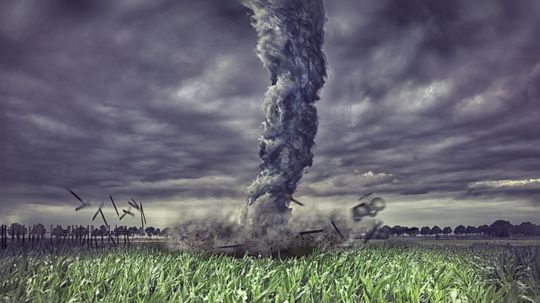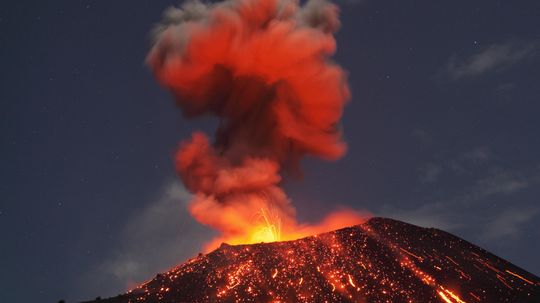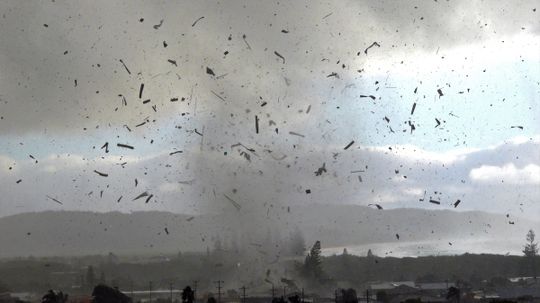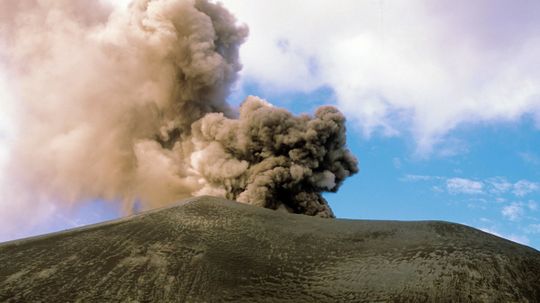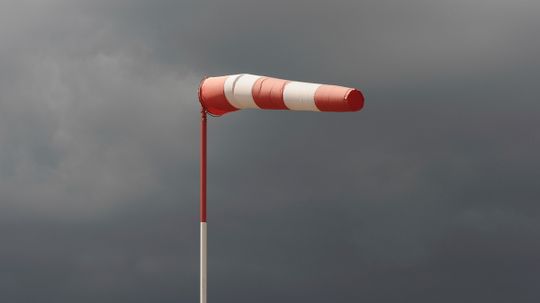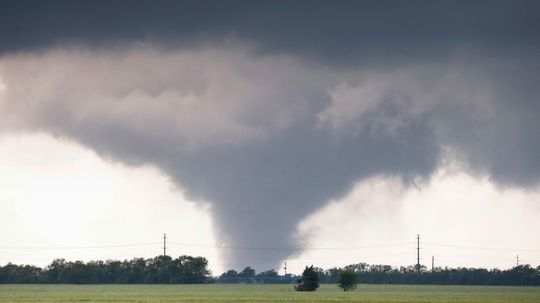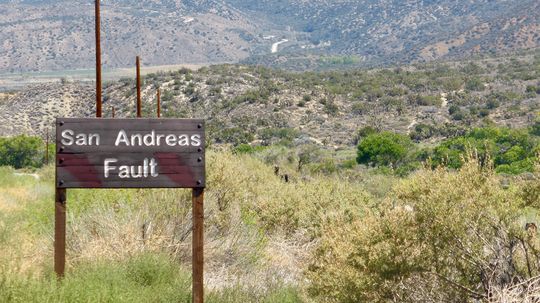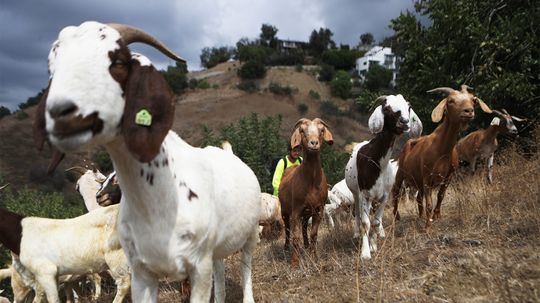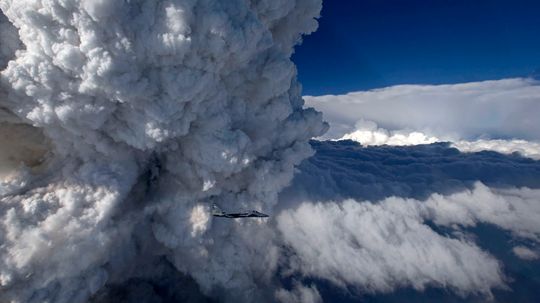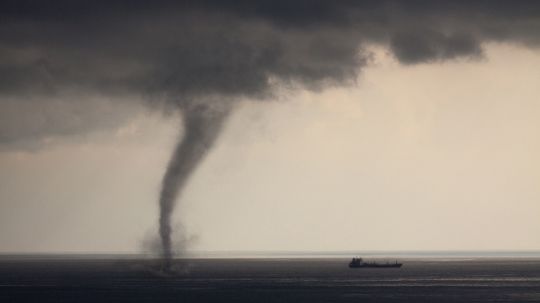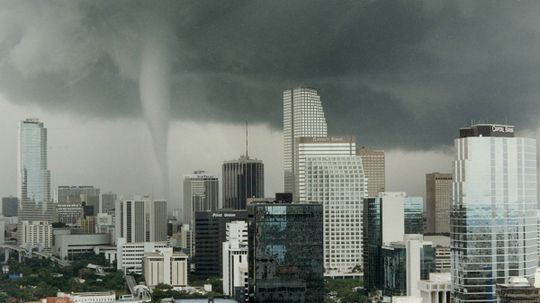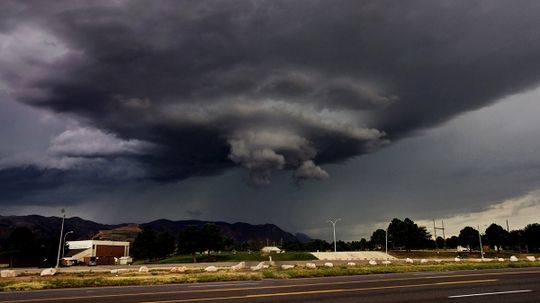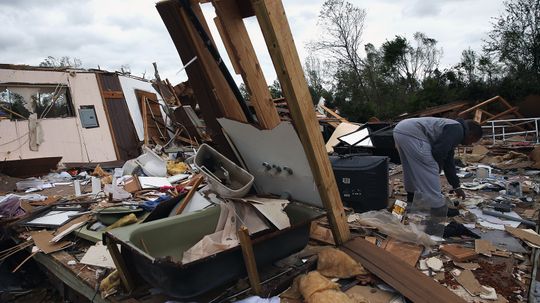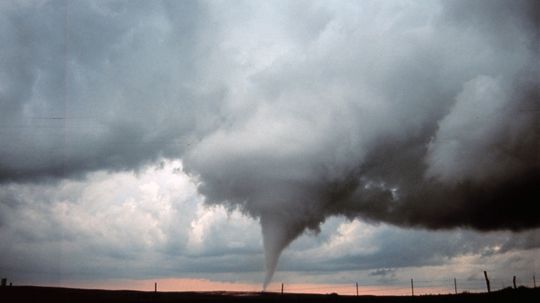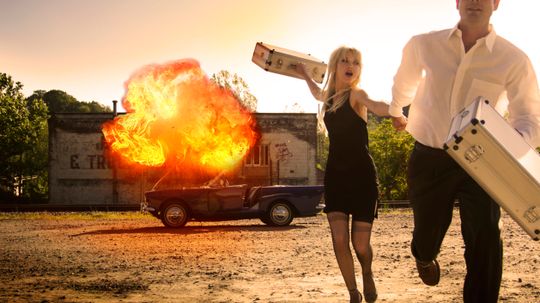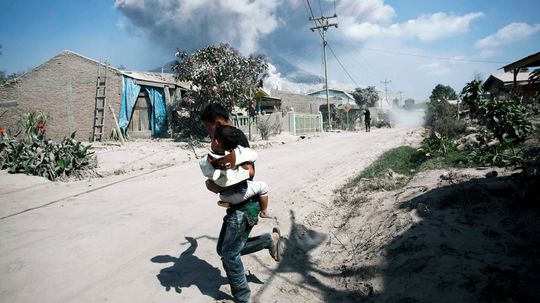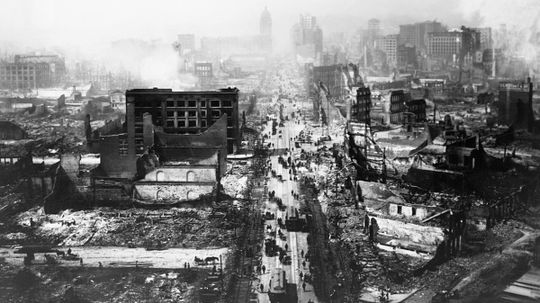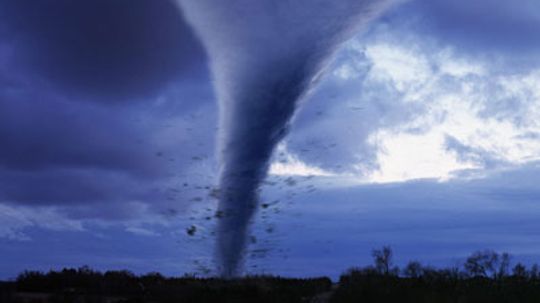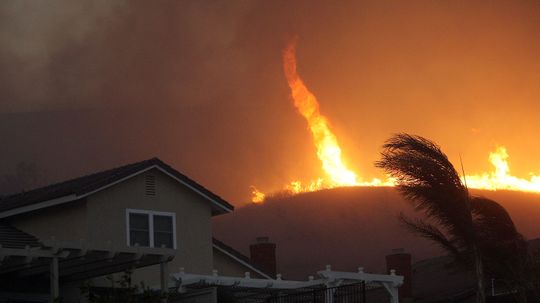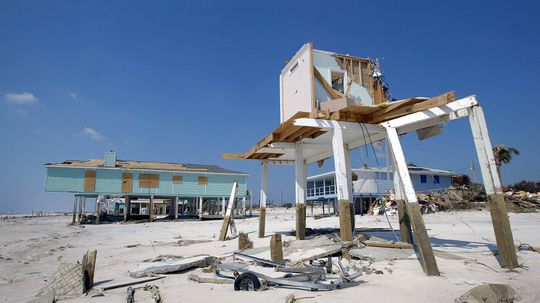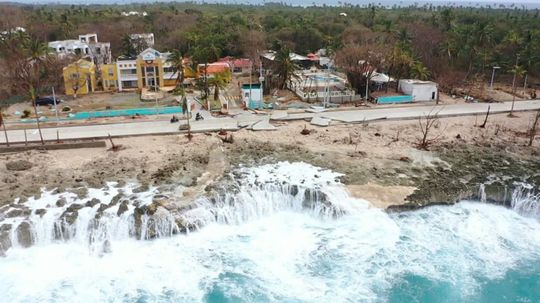Natural Disasters
Unpredictable forces of nature like tornadoes and hurricanes can have a devastating impact on humans and our environment. Learn how natural disasters work and how science aims to better predict them.
Learn More / Page 4
Separating fact from fiction when it comes to tornado safety could mean the difference between life and death.
It's hard to resist a movie where bloodthirsty beasts fall from the sky, especially if Ian Ziering stars! How might the science behind this B movie work?
Only a few natural events pack the power to knock global civilization on its heels. One is a planet-killing meteor. Care to guess the other?
Advertisement
North America certainly has many claims to fame. It's got the Great Lakes, the Grand Canyon and Niagara Falls -- all pretty impressive stuff. But can it claim tornadoes as uniquely its own -- and if so, what's up with that?
Determining the safest place on Earth can be a little tricky. After all, if we all knew where it was, wouldn't we all be clamoring to live there already? And anyway, what do we even mean by "safe" -- and safe from what?
Some things in this world you can just count on. The sun rises in the east and sets in the west. Certain types of birds will always fly south for the winter. But do tornadoes really only move from west to east -- and if so, why?
Mother Earth seems to have a love/hate thing going on with humans. While the planet we call home has all the essentials we need for life, it also has some nasty - and deadly - surprises.
Advertisement
The San Andreas is one of the most famous and closely watched fault lines in the world because of the fear that it is overdue for the next big quake.
Wildfires have become a frightening reality in California and elsewhere as climate change creates drastically drier conditions. Using goats to eat underbrush and create firebreaks is now a routine part of the firefighting arsenal.
These massive clouds form when wildfires give off intense heat and cause smoke and hot air to rise. Though rare, climate change may be making conditions favorable for more to form.
Have you ever watched a waterspout move over the ocean or a lake from what you thought was a safe distance? Don't get too comfortable next time. Waterspouts and tornadoes are closely related.
Advertisement
Are you safer from tornadoes if you live in a city? Would Dorothy have ended up in Oz if she lived in New York rather than Kansas? Let's separate fact from fiction.
Every year during tornado season, we see devastating effects of twisters in flat regions. But what about mountains? Do tornadoes steer clear of mountainous landscapes?
Your bathtub is great for taking a soak, giving the kids a bath, or even washing the dog. But can it protect you during a tornado?
There's a tornado coming! What do you do first? Grab your valuables? Seek shelter? Panic? Open the windows? Wait, what? Some say opening the windows in your house makes a tornado cause less damage. Read on to find out the truth.
Advertisement
It sounds simple enough. A wildfire is burning in your immediate area, so you turn from it and run. But getting away from a fire on foot may not be as easy as you think.
In the movies it looks so easy. A team of scientists are working near the crater of a volcano when it suddenly erupts. They jump in their vehicle and outrace the surging lava flow to safety. In reality, it just doesn't happen that way.
Earthquakes and their resulting aftershocks can be devastatingly destructive. Earthquakes are caused when a fault in the Earth's crust slips, which releases energy waves in the ground. Find a list of 12 of the most destructive earthquakes in history.
A tornado can turn a house into toothpicks, but when you think about it, it's really just a funnel of air. What's it like on the inside?
Advertisement
Inject heat, ash and fire into a spinning mass of air. Watch as a funnel of flames leaps from the ground, reaches for the heavens and then races forward to consume everything in its path. Is such a phenomenon possible?
The Americas have been hit with some major hurricanes throughout the decades. But which were the worst ones in history?
By Chris Opfer & Sarah Gleim
How often have you watched a weather forecaster point to a spiral-shaped cloudy mass with a sense of dread and fascination? What fuels these ferocious storms?
